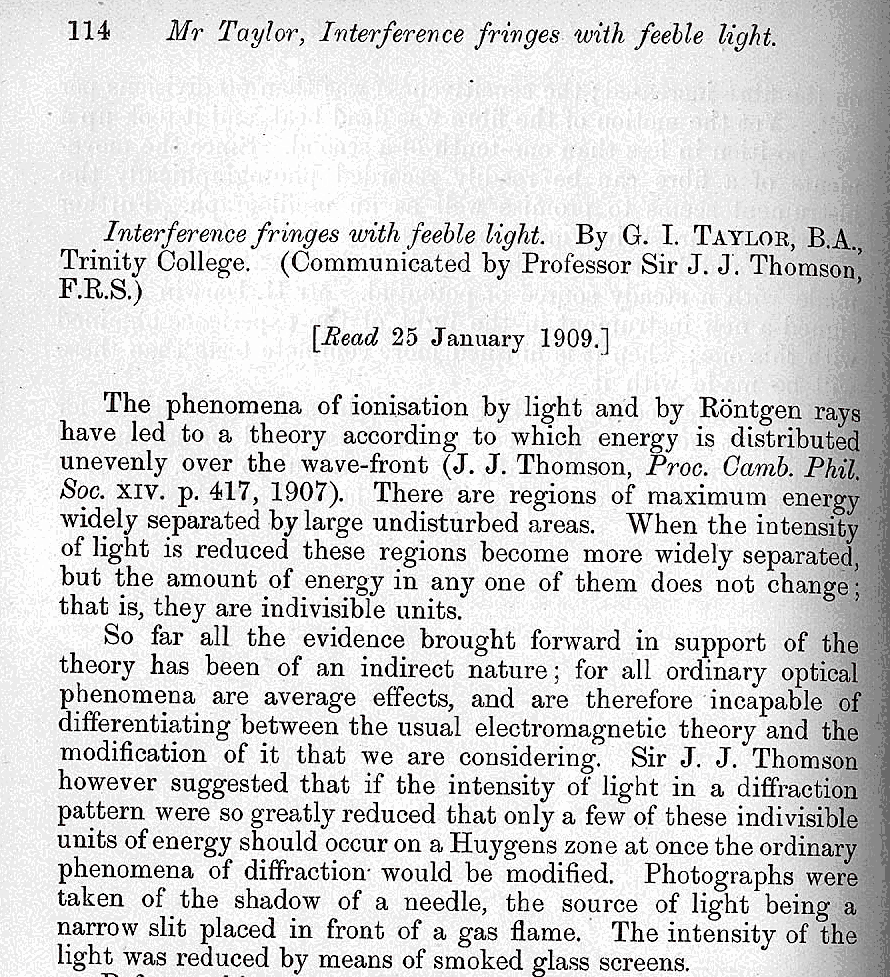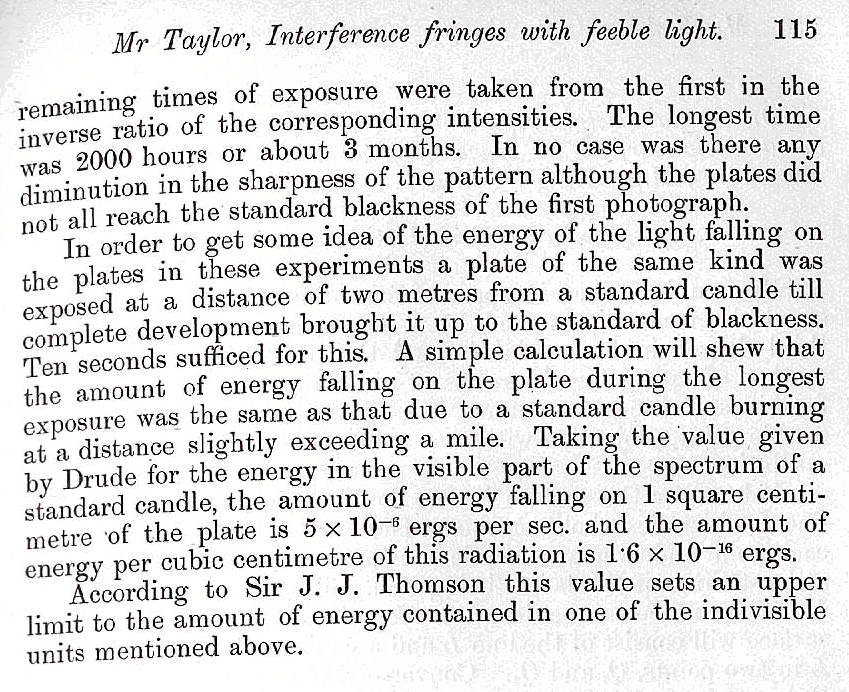
 Copyright © Michael Richmond.
This work is licensed under a Creative Commons License.
Copyright © Michael Richmond.
This work is licensed under a Creative Commons License.
Let's make a list of the phenomena which suggest that light is a wave, and a second list which suggest that light is a particle.
Behaves like a wave Behaves like a quantum ----------------------------------------------------------
So, wave or particle? Or maybe both? Or maybe neither?
Diffraction is one the phenomena which indicates that light acts like a wave. But doesn't it take more than a single wave to interfere and create a diffraction pattern?
Consider the experiment below: Taylor set up a simple apparatus which took photographs of the diffraction pattern around the shadow of a needle. Nothing fancy there. But he did it in a special way: using light of very, very low intensity. If light travels in quanta of a certain size, then a sufficiently feeble light source should send only one (or zero) photon at a time to any particular area. And if only one photon strikes a particular portion of a photographic plate at a time, how can a diffraction pattern form?
Read the experiment below. Using a bit of additional information:
try to calculate the number of photons which struck a single photographic grain on the plate each second.



 Copyright © Michael Richmond.
This work is licensed under a Creative Commons License.
Copyright © Michael Richmond.
This work is licensed under a Creative Commons License.